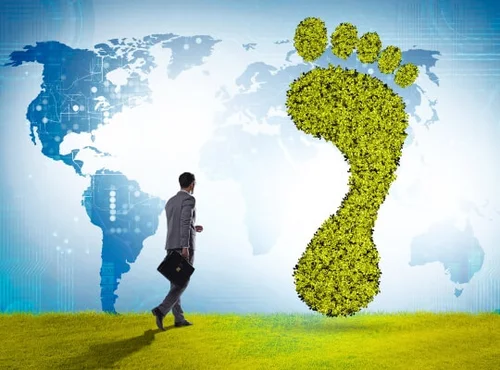Brussels, 30 July 2025 – BT4Europe, the European Network of Business Travel Associations, has released a new position paper, "Sustainable Business Travel – CO₂ Transparency and Global Comparability as Transformation Drivers", calling on policymakers and industry leaders to place carbon emissions at the heart of business travel decisions.
As the climate crisis accelerates, the paper presents a roadmap for transforming corporate travel into a more sustainable practice—one that aligns with environmental targets without compromising business needs. The key? Making CO₂ data just as prominent as cost across booking systems, invoices, and reporting tools.
“Sustainability is no longer optional, and greener business travel must be managed with the same discipline we apply to cost control, duty of care, and compliance,” said Angela Lille, Leader of BT4Europe’s Sustainability Working Group. “If emissions data isn’t visible, standardised, and integrated into our systems, we can’t manage it—let alone reduce it.”
Though business travel represents a small share of total tourism volume, BT4Europe emphasises its strategic importance for Europe's innovative economy, global competitiveness, and industrial resilience. Travel for business is not discretionary—it is purposeful and essential.
However, without access to reliable and comparable carbon data, companies lack the tools to make meaningful changes.
The paper highlights the need for harmonised global standards for CO₂ calculations.
Today’s patchwork of emission calculators, certifications, and labels creates confusion, undermines fair competition, and burdens companies operating under stricter European rules. A unified approach would allow organisations to benchmark performance, support smarter procurement, and ensure emissions data aligns with international reporting frameworks like the CSRD.
Equally important is the integration of emissions data into every step of the business travel process. From train and flight bookings to hotel stays and car rentals, CO₂ values must be surfaced alongside cost—empowering travellers and travel managers to make informed, balanced choices. Travel platforms, TMCs, and booking tools play a central role in this shift by embedding emissions data into everyday decision flows and corporate reporting systems.
BT4Europe points to the work of the Energy & Environment Alliance (EEA) as a model of effective, sector-wide standard-setting. Mandated by the IFRS Foundation, the EEA is developing globally applicable sustainability metrics for the hospitality industry—proof that collaborative, investment-grade standards are possible and impactful.
Looking ahead, BT4Europe calls for coordinated action across the policy and business landscape. The transformation of corporate travel depends on a few key measures:
• Making CO₂ values visible and comparable at every booking and invoicing stage
• Aligning calculation and reporting methods globally
• Embedding emissions data into mandatory sustainability reporting
“Transformation happens when data becomes decision-ready,” said Lille. “With shared CO₂ standards, companies can reduce emissions effectively, meet growing disclosure requirements, and protect Europe’s position in a decarbonising global economy.”
About BT4Europe
BT4Europe is the European Network of Business Travel Associations, representing national business travel communities across Europe. We advocate for smart, sustainable, and competitive policy frameworks that support responsible corporate mobility, climate action, and economic resilience.
Media Contact:
Mark Watts
+32474060185
markwatts@lpbrussels.com
www.bt4europe.com





